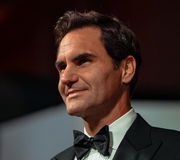
Imago

Imago
Men’s gymnastics is at a crossroads. In the recent period of major gymnastic athletes like Stephen Nedoroscik and Carlos Yulo redefining excellence on the global stage, the sport is on the verge of extinction. Gymnasts all over the world are doing well in gymnastics and showing what heights the sport can reach. The truth, however, is that the world is losing many of its top-notch gymnastics programs, which makes the sport’s fate uncertain.
Watch What’s Trending Now!
In the U.S., collegiate programs that once nurtured Olympic champions are dwindling, while in Cuba, the basic foundation of the sport was destroyed due to political and financial reasons; they couldn’t participate in the 1984 Los Angeles and 1988 Seoul Olympics. Although bright spots within individuals come to light, widespread negligence may wipe out years of progress. This very contradiction has raised the question: How can a sport that produces such legends be allowed to fade into obscurity?
ADVERTISEMENT
Decline of men’s gymnastics programs
Did you know that, in the U.S., only 12 Division I universities sponsor men’s teams, and forget about D2 level, and only three in D3? The future of gymnastics is not so good in Cuba as well. In the United States, the number of collegiate men’s gymnastics programs has drastically declined from over 150 in the 1970s to just 12 Division I teams today. This reduction is partly due to efforts to comply with Title IX regulations.

ADVERTISEMENT
Cuba once established a presence in gymnastics, but now Cuba no longer wins or even competes at the Central American Games, showing the dire state of gymnastics. Reflecting on the decline of Cuba, former Cuban gymnast and current coach Damian Merino said, “I competed in every Moncada tournament between 1989 and 1996, which were highly competitive due to the participation of top gymnasts from the socialist bloc.”
ADVERTISEMENT
Elite gymnasts from all over the world used to go to Cuba to provide exposure and compete, something that helped grow Cuba, but now the competition is declining. It is happening because of the scarcity of resources. Owing to the political involvement, no costly equipment is made available and innovation can be done—gymnastics is an expensive sport, and not much money is allocated to the sport. The decline is growing despite efforts by gymnasts like Carlos Yulo and Stephen Nedoroscik.
Top Stories
Sean Payton Announces Retirement Plans as Broncos HC Demands Improvement From Bo Nix & Co. Before Playoffs

Greg Biffle’s $4M Worth Prized Possession Still Without a Buyer Leaves NASCAR Fans Heartbroken

LIV Golf Braces for Another Possible Exit in Wake of Brooks Koepka Departure

Biff Poggi All But Confirms Bryce Underwood’s Michigan Future After Announcing His Own Departure

Roger Federer Draws Criticism from Swiss Government Chief for Tourism Boom in Country

NASCAR World Mourns as Former Watkins Glen President Michael Printup Passes Away at 60

Remarkable contributions by Stephen Nedoroscik and Carlos Yulo
Stephen Nedoroscik, an American gymnast, has been instrumental in elevating men’s gymnastics, particularly through his specialization in the pommel horse. His dedication and success underscore the importance of collegiate programs in nurturing gymnastic talent. Nedoroscik has actively advocated for the revival and maintenance of university gymnastics programs, emphasizing their critical role in developing future Olympians. He stated, “Men’s gymnastics is not going to cost you as much as you think. There’s so much talent in this country that will never be able to reach its true potential because people are cutting programs.”
ADVERTISEMENT
Carlos Yulo, a Filipino gymnast, has made history with his exceptional performances on the international stage. In 2024, Yulo secured gold medals in floor exercise and vault at the Paris Olympics, becoming the first Filipino gymnast to achieve such a feat. His accomplishments have brought significant attention to men’s gymnastics in the Philippines and inspired a new generation of athletes.

ADVERTISEMENT
Despite these individual successes, men’s gymnastics is experiencing a decline in support and infrastructure, particularly in countries like Cuba. The diminishing support at the collegiate level poses a significant threat to the development of future gymnasts and the overall health of the sport.
While athletes like Nedoroscik and Yulo have demonstrated the heights men’s gymnastics can achieve, the sport’s future is jeopardized by the decline of essential programs and support systems. Addressing these challenges is crucial to ensure that upcoming talents have the opportunities and infrastructure necessary to succeed on the world stage.
ADVERTISEMENT
ADVERTISEMENT
ADVERTISEMENT
ADVERTISEMENT

